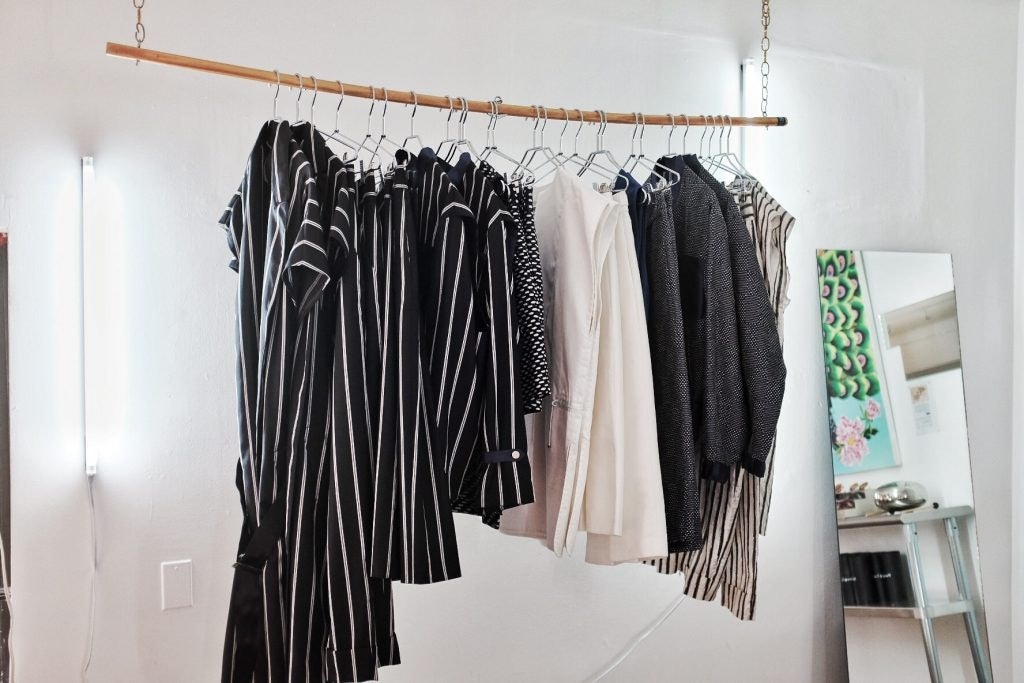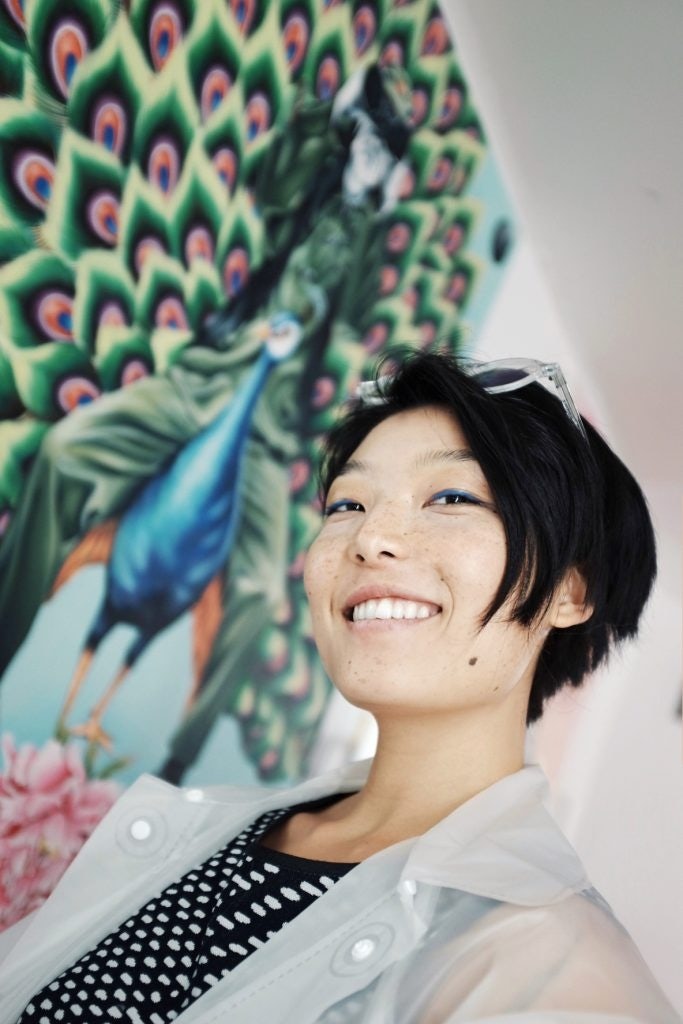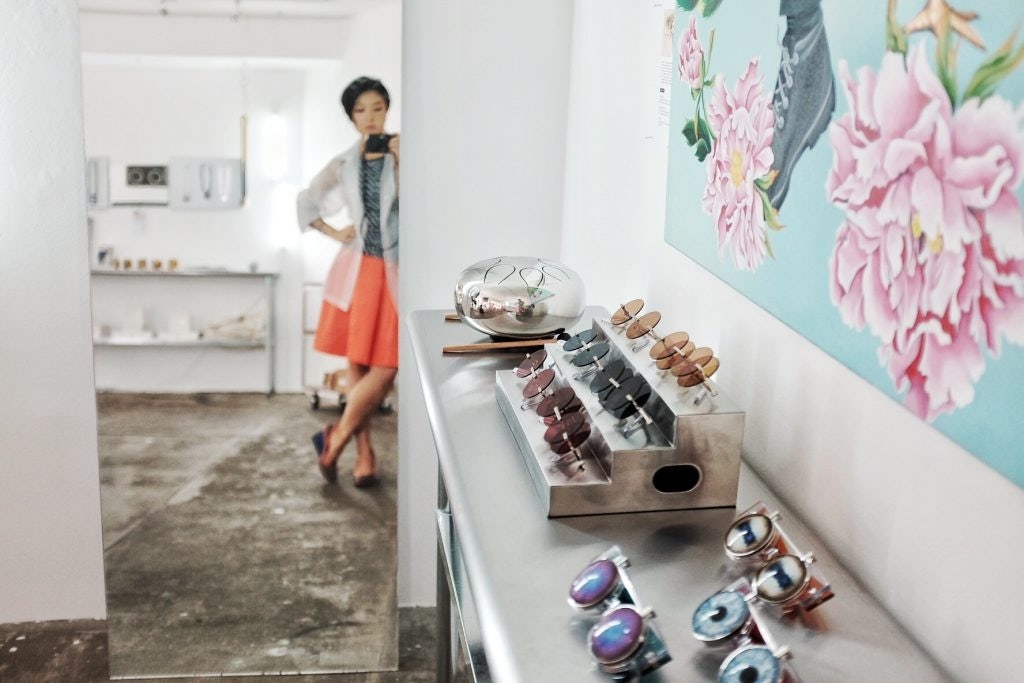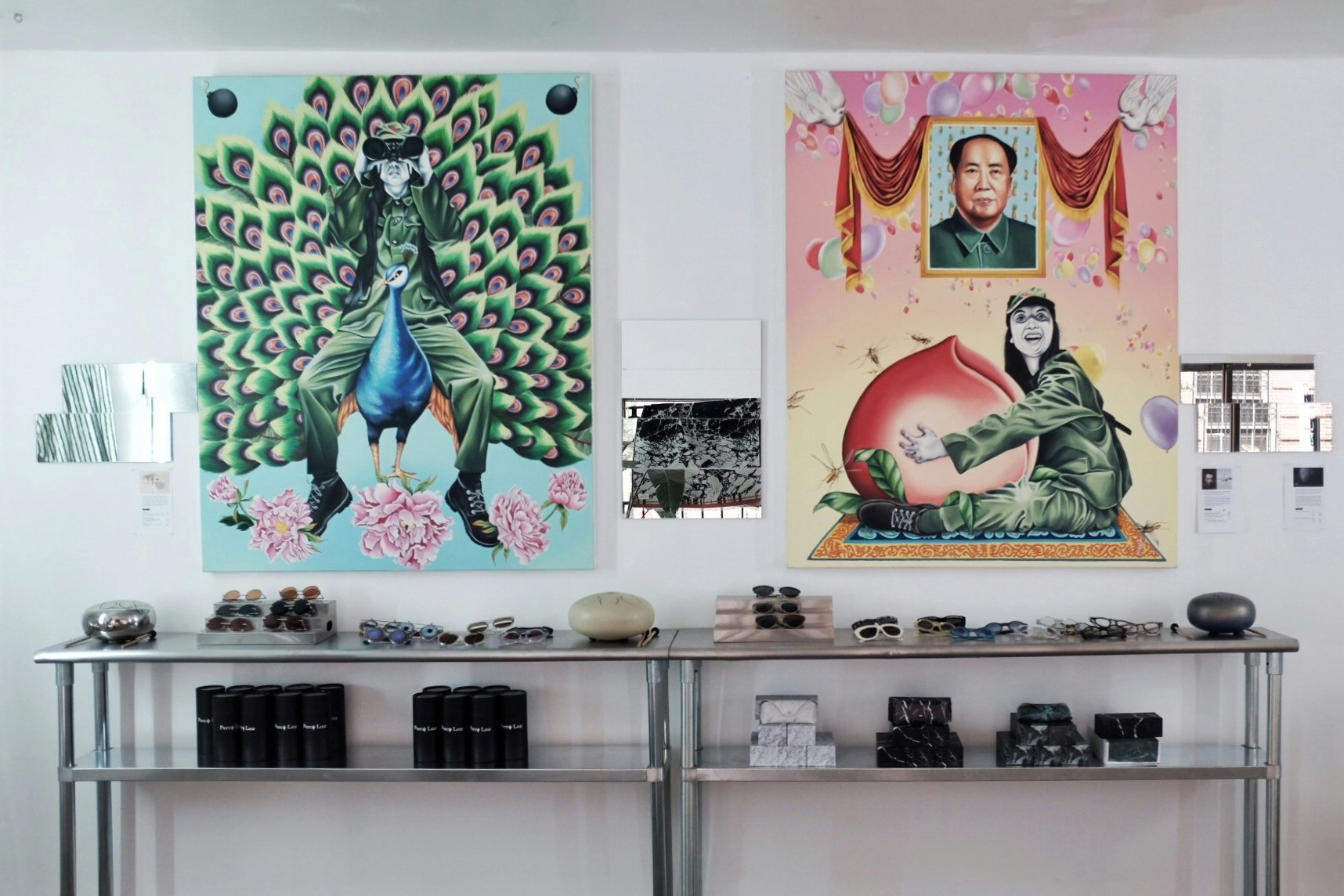Chop Suey Club takes its name from the vegetable medley dish found in Chinatowns across America in the '60s, and someone observing the boutique's contents during its official launch party this week in Manhattan's Two Bridges neighborhood might see why.
“There is kind of a contained chaos in it,” founder and creative director Ruoyi Jiang said. “I like having a big range of things to show a whole lifestyle, and I can't really pick and choose. I just want to have all of them.”
Unlike the famous dish, whose origins aren't quite known, the products for sale in Chop Suey Club—the eyewear, lingerie, home décor, accessories, and clothing—are made in China, and proudly so. Jiang curates brands and designers that she feels represent aspects of Chinese traditions, culture or philosophy through their design aesthetics: Shanghai-based eyewear brand CHairEyes does this through frames handcrafted using Chinese materials like Chinese liuli, or colored glass, jade, and turquoise. Jewelry designer Ejing Zhang's painstakingly pieced-together scenes of tiny fibers have incorporated leftover wool threads from a fellow Chinese designer's womenswear collections. Pillowbook founder Irene Lu gives padded bras the boot, replacing them with the silky traditional Chinese lingerie otherwise known as the dudou. Fashion designer Sean Suen marries Western menswear styles with silhouettes from Chinese fashion into his collections.

Jiang herself grew up in Beijing, and moved to the United States in 2009 to study photography at New York University. It wasn't long before she began questioning what it really meant to be Chinese—she had, after all, attended an international high school where many of her peers were considered “third culture kids,” or children who have been raised in a different culture than one or both of their parents. As she spent the next several years working in various creative agencies and architectural studios, she started to further explore how to define who she was, and not necessarily who her ancestors might portray her to be.

“What people know about China is mostly the very traditional stuff,” she said. “If you ask someone what they know about China now, most of them have no clue. That's not to say I know an awful lot, but I don't think the old stuff really fully represents who I am. Therefore, I think it's important for me to explore a little bit of contemporary China and Chinese culture.”
And what better way to do it, she thought, than to showcase her own favorite bits and pieces of China's quickly expanding independent design scene.
Her store is located on the first floor of a gallery on Hester Street in the Lower East Side, in an up and coming neighborhood devoted to art galleries and small boutiques. Just down the road is Mission Chinese Food, the restaurant that became famous for its hip take on Asian cuisine, as well as countless galleries, a handful of antique shops and an indie movie theater. Hers is the first permanent retail space devoted to Chinese designers, as far as Jiang is aware, but there have been other movements to introduce the West to China's creative potential. Earlier this year, Tiger Beer hosted a pop-up event in Chinatown dedicated to Chinese designers, with more than 700 creatives from around Asia taking part. In 2015, American Rag Cie boutique in Los Angeles hosted a pop-up store for up and coming fashion designers like Chi Zhang and Taciturnli.
China's fashion scene as a whole has been getting more attention in the past few years, particularly at New York Fashion Week and at Opening Ceremony, whose buyers Carol Song and Jesse Hudnutt have been scoping out China's fashion weeks to vet designers for their Year of China collections. Jiang said that while she contrasts Chop Suey Club with more conventional fashion platforms, the goal is comparable: “We're trying to distinguish the idea of made in China from well-made in China.”

The shop has been open since March, and they're already having small victories. Jiang says she was particularly excited to hear that Lady Gaga was seen leaving her New York City apartment in July wearing a pair of the Percy Lau double lens sunglasses she had on sale in her store. But it was when Diesel's creative director Nicolas Formichetti came in the boutique and bought the Hong Kong-based designer's sunglasses in front of her that she became particularly giddy.
“I had no idea who he was when he walked into my store, and he just picked up two pairs of glasses and dropped them in front of me and said, 'Tell me about the designer,'” she says. After she explained, he eventually asked her how much two pairs were. “I said, '709 dollars,' and he just took out his credit card and bought them.”
It wasn't until Jiang, taken aback, asked for his business card that she realized who he was. “And I looked, and I said to myself, 'Oh my god, that's exactly who I had in mind as my clientele.'”
Celebrities can no doubt be great spokespeople for Chinese design, but Jiang says she's targeting Chinese clients living in New York as well. She's noticed her Chinese customers are responding well to the Pillowbook lingerie, which can be customized for style and color. “The white silk dudou has been selling really well, and 90 percent of the buyers are young Chinese women,” Jiang says, adding that her clients get excited when they recognize it as a modern take on an undergarment that originated from the Qing Dynasty. “It makes them feel proud to wear it, and that's what I'd like to provide to Chinese customers living here.”
Jiang says she hopes to continue her exploration into contemporary craftsmanship coming from China, and has plans to branch out into furniture and other fixtures for the home, a territory with a lot of room for growth in the U.S. market. Meanwhile, she's working on building up momentum for her cause, keeping things fresh by introducing new products from Greater China every few months.
“Even my mother tells me, 'These things are made in China, how can you sell them for such a high price?'” Jiang says. “I say, that's something we have to change.”
